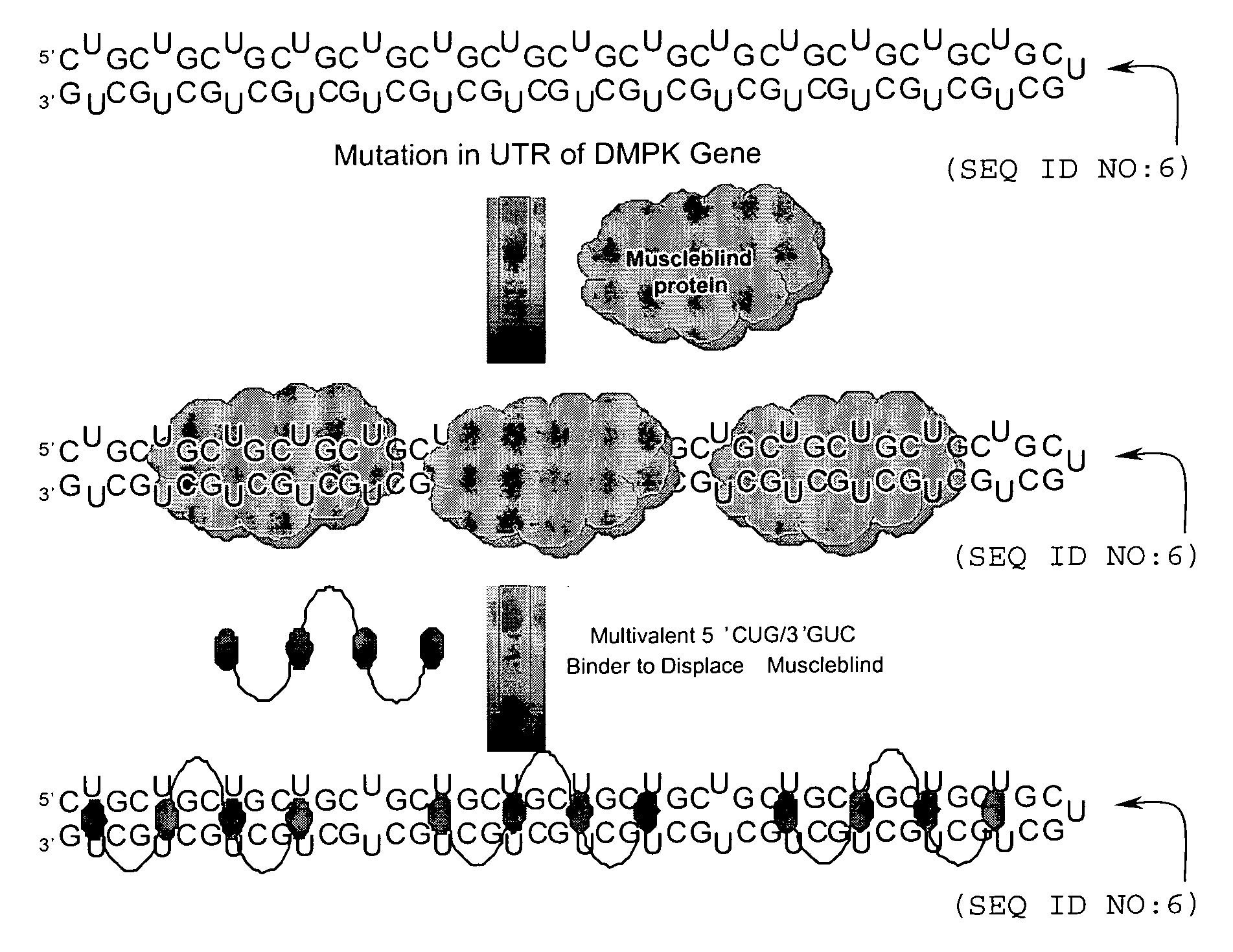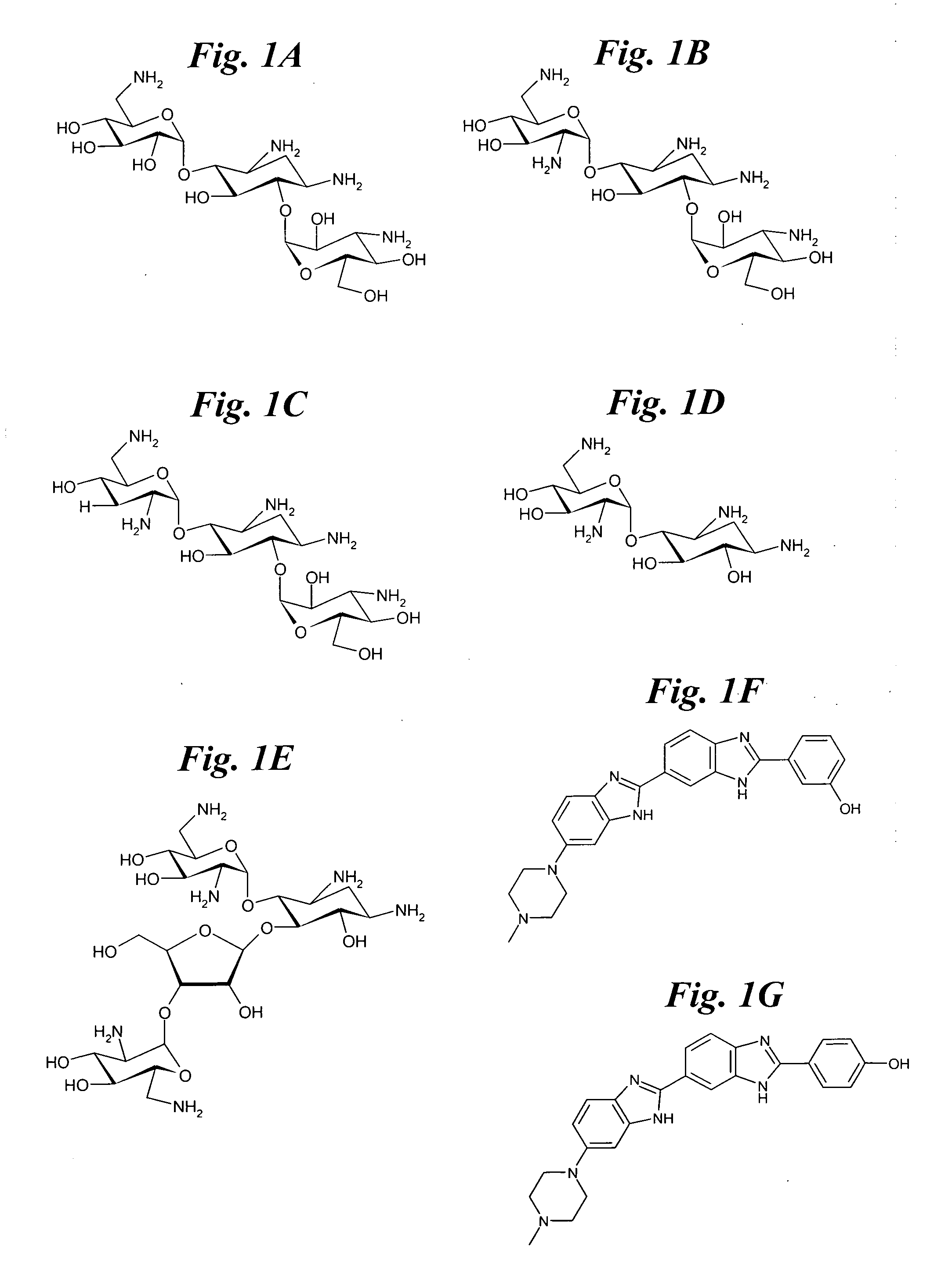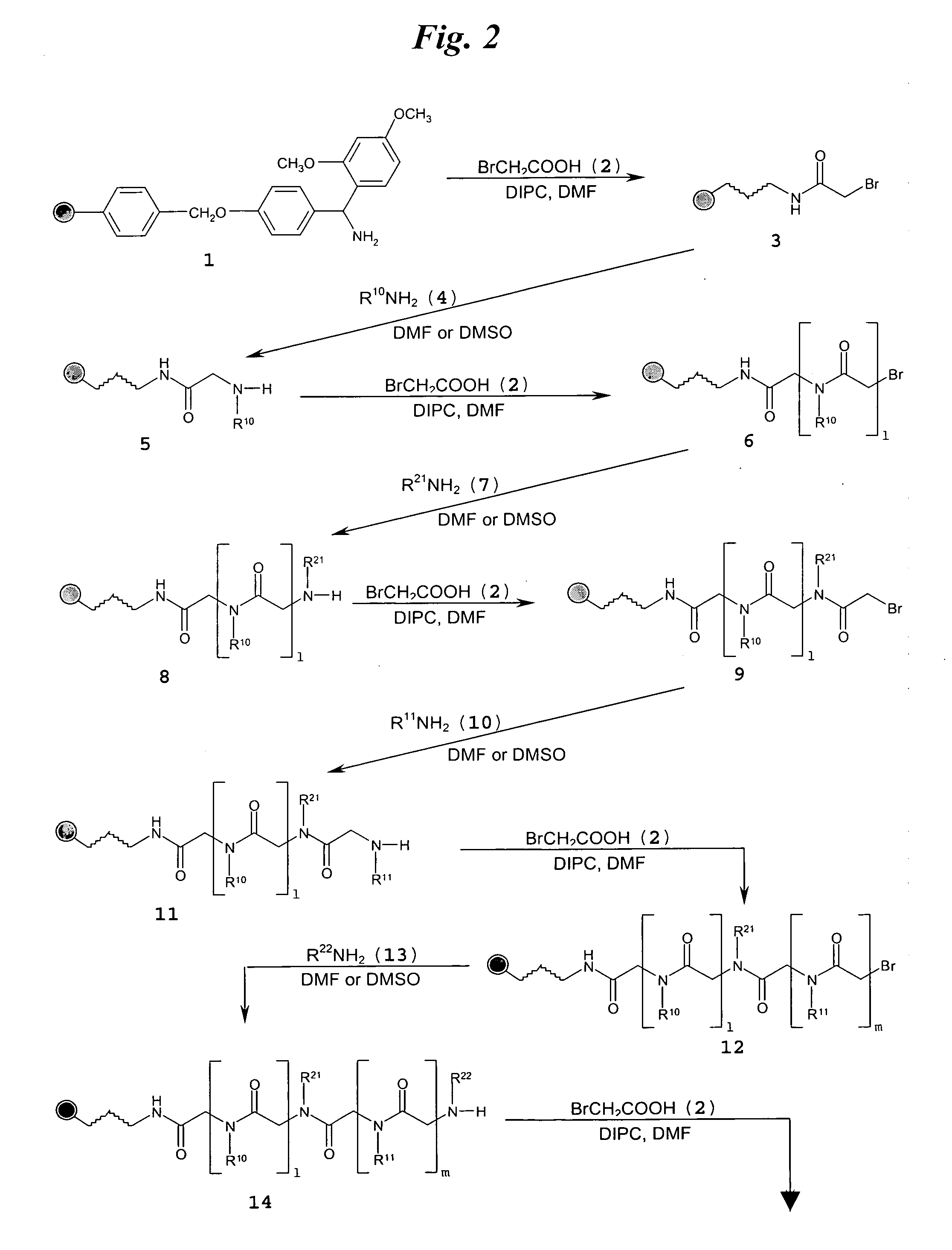RNA targeting compounds and methods for making and using same
a technology of rna and ligands, applied in the field of rna targeting compounds, can solve the problems of inability to study the systematic interaction between rna and ligands, large under-utilized targets, and difficult to understand how to target rna with small molecules and other ligands
- Summary
- Abstract
- Description
- Claims
- Application Information
AI Technical Summary
Benefits of technology
Problems solved by technology
Method used
Image
Examples
example 1
Preparation of Multivalent RNA-Targeting Compounds Displaying Kanamycin A RNA Binding Ligands
[0104]This Example 1 and in the following Examples 2-4 describe methods to prepare multivalent oligomers that target RNA. These oligomers are decorated with multiple copies of a single ligand or several different ligands that bind to an RNA motif. Ligands are multivalently displayed on peptoid polymers [31] that are functionalized with azides suitable for conjugation to ligands that display an alkyne via a 1,3 dipolar Huisgen cycloaddition reaction [32-34]. Also described are the design and synthesis of peptoids that vary the spacing between the ligands by coupling methylamine into a growing peptoid chain.
[0105]To illustrate the present invention, these examples describe the synthesis of peptoids that display 6′-N-5-hexynoate kanamycin A with varying spacing is described. We have identified this kanamycin derivative as a lead compound for binding to the 5′CUG / 3′GUC motif that is present in m...
example 2
Preparation of RNA Binding Ligands
[0106]N-Succinimidyl-5-hexynoate was prepared using the procedure described below:
5-hexynoic acid (1 g, 8.3 mmole) was dissolved in 4 mL of a mixture of chloroform and DMF (9:1) and stirred. To this solution was added N-hydroxyl succinimide (0.95 g, 8.3 mmole) and N-(3-dimethylaminopropyl)-N′-ethylcarbo-dimide (“EDC”) (1.58 g, 8.3 mmole), and the reaction was stirred overnight. The reaction was then diluted to 100 mL with methylene chloride and extracted with 0.1 N HCl (3×50 mL) and 5% NaHCO3 (3×50 mL), dried over MgSO4, and concentrated. The crude reaction mixture was used for all subsequent experiments (1.1 g, yield 60%). TLC analysis (3:7 EtOAc:CH2Cl2) showed a single product (Rf 0.70).
[0107]N-benzyloxycarbonyloxy-5-norebornene-endo-2,3 dicarboximide was prepared using the procedure described below:
A synthesis of this compound using phosgene has been reported [42]. To eliminate the use of phosgene, a new and safer synthesis was developed. This co...
example 3
Synthesis of Peptoid Oligomers Displaying Azides for Multivalent Display of RNA-Targeting Ligands
[0112]FIG. 3A shows a schematic of the synthesis of multivalent peptoid oligomers to display multiple copies of 6′-N-5-hexynoate kanamycin A. Use of methylamine as a reactant in the synthesis allowed variation in the spacing of the 6′-N-5-hexynoate kanamycin A RNA-targeting ligand along the peptoid backbone, as can be seen in the azide-displaying peptoids 32, 33, and 34 (FIG. 3A). The azide-displaying peptoids are then conjugated to 6′-N-5-hexynoate kanamycin A using Cu(I) catalyst conditions to produce RNA targeting compound 35, as shown in FIG. 3B. In FIG. 3B, the group identified as “AG” has structure 36.
[0113]A description of the peptoid synthesis procedure (illustrated in FIG. 3A) is set forth below.
[0114]A 100 mg portion of Fmoc-Rink amide resin (0.67 mmol / g loading) was prepared for the first coupling step in a 10 mL solid-phase reaction flask (Chem Glass) by swelling for 20 min i...
PUM
 Login to View More
Login to View More Abstract
Description
Claims
Application Information
 Login to View More
Login to View More - R&D
- Intellectual Property
- Life Sciences
- Materials
- Tech Scout
- Unparalleled Data Quality
- Higher Quality Content
- 60% Fewer Hallucinations
Browse by: Latest US Patents, China's latest patents, Technical Efficacy Thesaurus, Application Domain, Technology Topic, Popular Technical Reports.
© 2025 PatSnap. All rights reserved.Legal|Privacy policy|Modern Slavery Act Transparency Statement|Sitemap|About US| Contact US: help@patsnap.com



